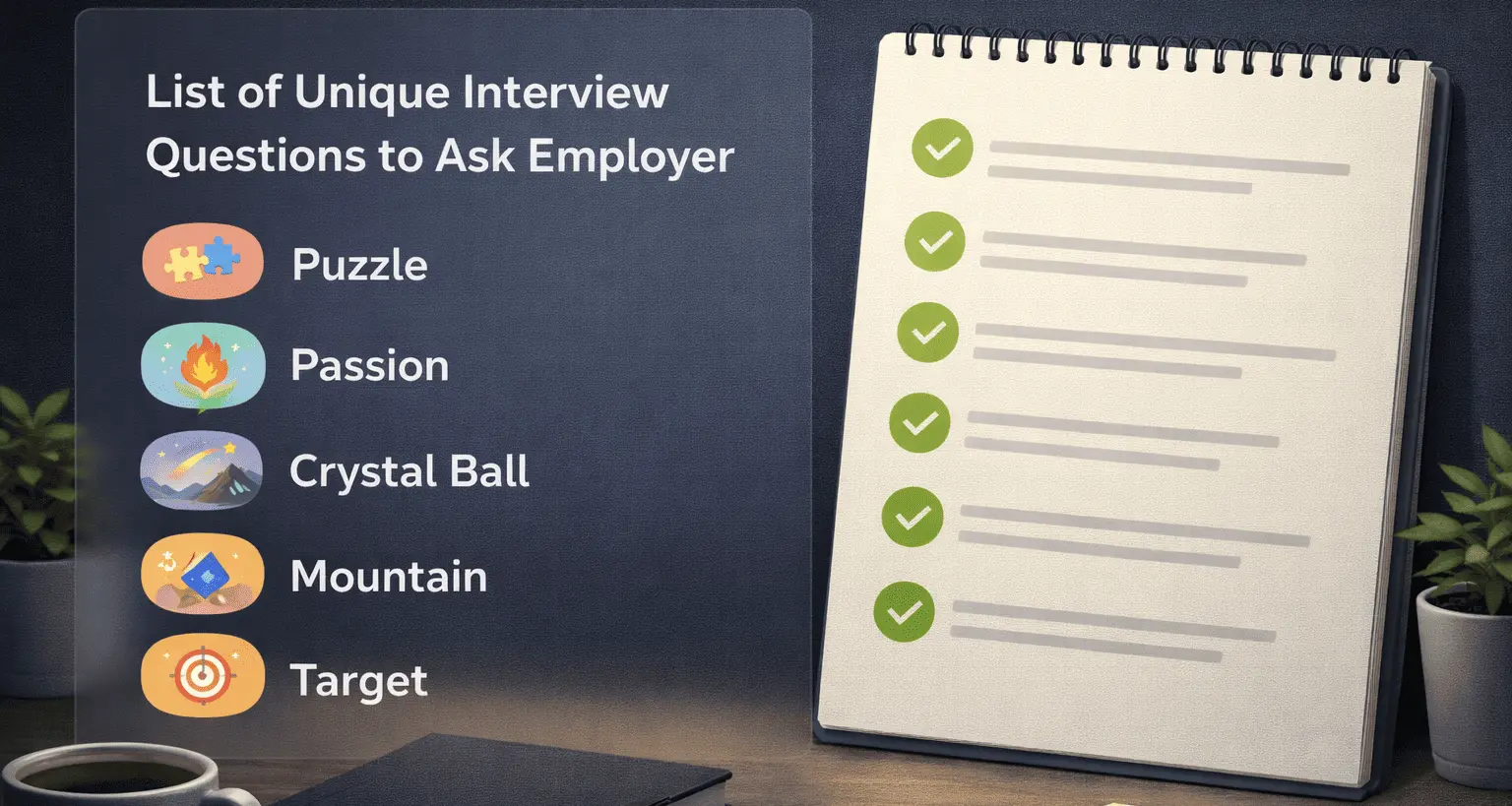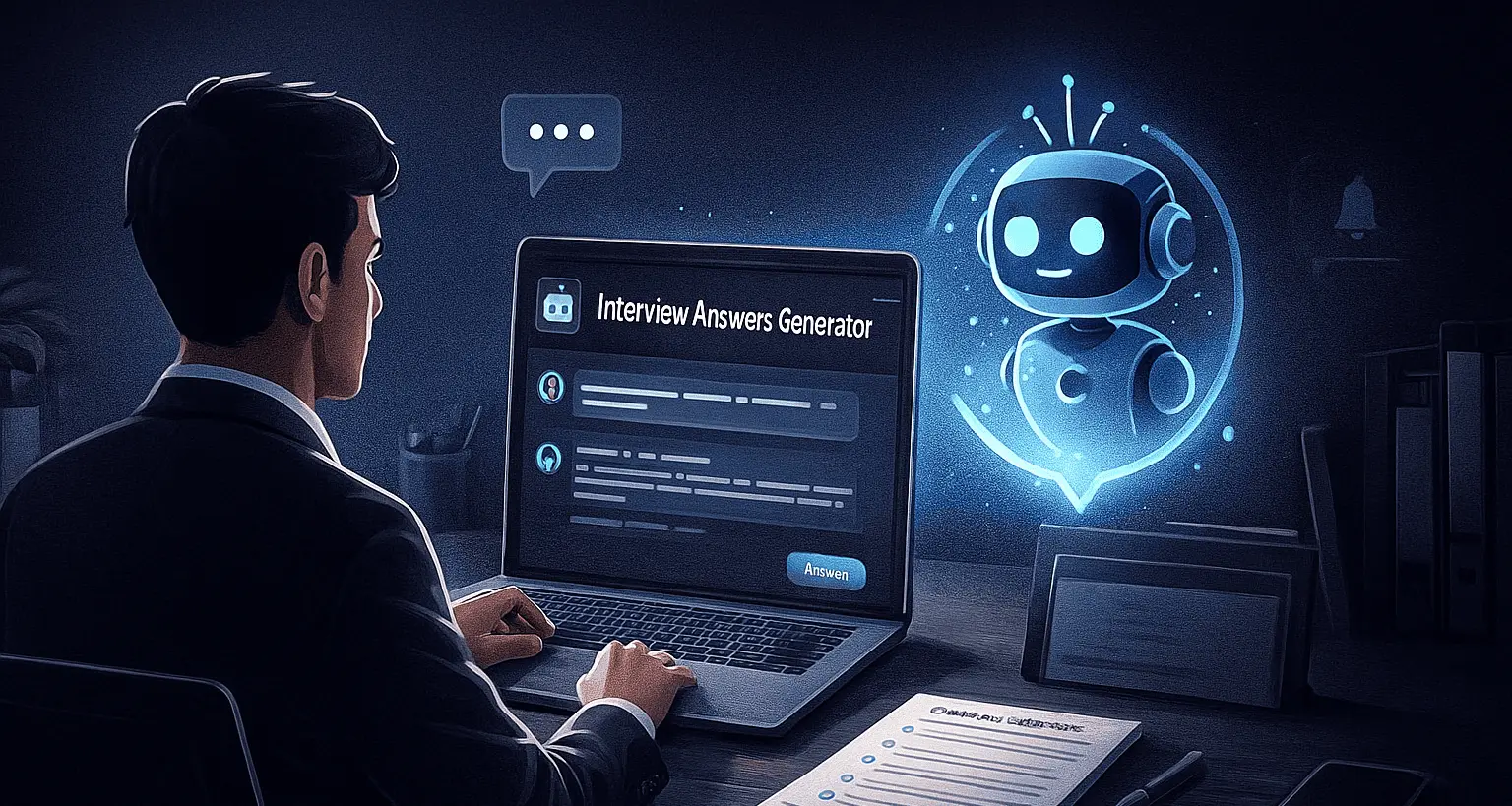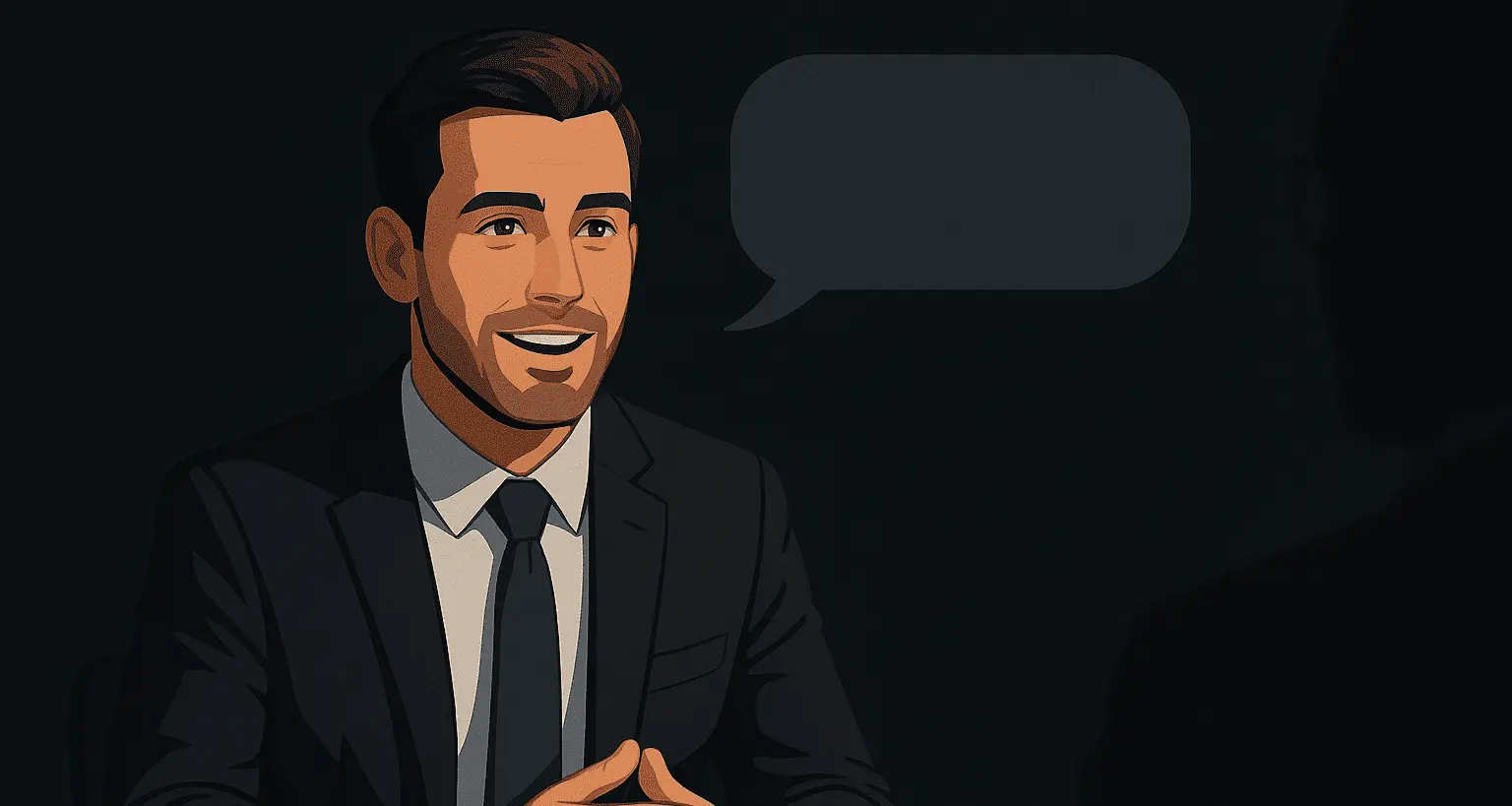Picture this: You arrive for what you think is a standard one-on-one interview, and suddenly you're sitting across from five other candidates in a conference room. Your heart skips a beat. Welcome to the group interview—a hiring format that's become increasingly common but still catches many job seekers off guard. If you're wondering "what is a group interview?" you're in the right place. This format tests not just your qualifications, but how you navigate pressure, collaborate, and stand out in a crowd.
I've coached hundreds of candidates through group interview experiences, and here's what I've learned: the ones who succeed aren't always the loudest or most aggressive. They're the ones who understand the format, prepare strategically, and know how to balance assertiveness with teamwork. In this guide, we'll break down everything you need to know about group interviews—what they are, why companies use them, what to expect, and most importantly, how to ace them.
Understanding Group Interviews: Definition and Format
If you're asking what is a group interview, it's a hiring process where one or more interviewers assess multiple candidates simultaneously. Instead of the traditional one-on-one setup, you're competing and collaborating with peers in real time. This format can vary widely—sometimes it's a panel of four candidates answering individual questions, sometimes it's six people working together on a collaborative project, and sometimes it's a mix of both.
The core appeal? Efficiency and insight. Companies can evaluate how you perform under pressure, how you communicate with others, and whether you're genuinely a team player or just say the right things on your resume. Unlike a one-on-one interview where you control the narrative, a group setting strips away that safety net. You can't rehearse your way through it—you have to think on your feet and adapt to what's happening around you.
Companies across industries use group interviews—tech firms love them for collaborative problem-solving, retail chains use them for customer service positions, consulting firms rely on them to spot leadership potential, and nonprofits employ them to assess cultural fit. If you're job hunting today, odds are you'll encounter at least one group interview scenario. Understanding the mechanics gives you a competitive edge.
Why Do Companies Use Group Interviews?
Before we dive into tactics, let's understand the "why" behind group interviews. When you know what a hiring manager is actually evaluating, you can prepare more strategically. Here are the main reasons companies opt for this format:
- Time and Cost Efficiency: Interviewing 20 candidates one-on-one takes days. A series of group interviews compresses that timeline significantly. For large-volume hiring (entry-level retail, hospitality, customer service), this is huge.
- Stress Testing: How do you handle pressure? A group setting cranks up the intensity. Companies want to see if you stay composed, keep your confidence, or fold under scrutiny. One-on-one interviews can't replicate this authentically.
- Team Dynamics Visibility: Your technical skills matter, but so does chemistry. Do you listen? Share credit? Help others? In a group interview, behavioral patterns emerge quickly. A hiring manager watches how you interact—are you collaborative or purely self-focused?
- Spotting Natural Leaders: Especially for managerial roles, companies use group interviews to identify who naturally steps up, influences without dominating, and brings others along. Leadership isn't always loud—it can be thoughtful and inclusive.
- Communication Under Real Conditions: In your actual job, you won't have the luxury of a quiet room with one interviewer. Group interviews simulate the real workplace chaos. They reveal how you communicate when there's noise and competing voices.
- Reducing Bias: Multiple candidates being evaluated together, with peers and interviewers watching, can actually reduce some hiring biases. It's harder to make snap judgments when you're actively comparing people side by side across different dimensions.
Types of Group Interviews: What to Expect
Not all group interviews are the same. If you're wondering what is a group interview like in practice, here are the main formats you might encounter:
Panel Discussion Format
Multiple candidates sit around a table while one or more interviewers ask questions. Each candidate responds individually, but everyone hears everyone else's answers. This tests your ability to listen, think critically, and build on others' ideas. You might hear a competitor's excellent answer and need to offer something different yet equally strong. It's competitive but also collaborative in spirit.
Group Task or Project
Interviewers give a group a problem to solve or project to complete—often with limited time and resources. Maybe you're asked to pitch a marketing campaign, design a prototype, or analyze a case study. During this, you're observed. Who takes charge? Who listens? Who mediates conflict? Who fades into the background? This format is gold for companies assessing leadership, creativity, and conflict resolution.
Role-Playing Scenarios
You're assigned roles and asked to act out a workplace scenario. Say you're interviewing for sales—they might have you roleplay closing a difficult client. Or for HR roles, handling a workplace conflict. Group role-play evaluates your communication, empathy, and ability to handle interpersonal situations under observation. It feels awkward at first, but it's incredibly revealing about your soft skills.
Presentation With Q&A
Each candidate might prepare and deliver a short presentation (on your experience, a topic, or a solution), then field questions from interviewers and sometimes from other candidates. This blends individual performance with group dynamics. You're judged on content but also on how you handle criticism and engage with peer questions.
Speed Dating / Round Robin Format
Candidates rotate through multiple interviewers or interview stations in short bursts (5-10 minutes each). It's less interactive with other candidates but still group-paced and energetic. This format is common in large recruitment drives or career fairs.
The Hidden Dynamics: What Interviewers Really Watch
Understanding what is a group interview means knowing what's being evaluated beyond your standard qualifications. Here's what hiring managers are actually observing:
- Confidence Without Arrogance: Can you speak up without drowning out others? Do you own your ideas while remaining open to feedback? Arrogance shows quickly in a group—it repels. Confidence paired with listening? That attracts.
- Active Listening: Do you actually hear what others say, or are you just waiting for your turn? Nodding, building on peers' points, asking clarifying questions—these signal you're genuinely engaged, not just self-interested.
- Handling Disagreement: When someone challenges your idea, do you get defensive? Do you pivot and attack? Or do you calmly defend your position while respecting theirs? Conflict management is huge. Companies want people who can disagree professionally.
- Emotional Intelligence: How do you read the room? If a peer is struggling to articulate something, do you help? If tension rises, do you defuse it with humor or empathy? These micro-moments reveal your EQ.
- Contribution Balance: Are you hogging air time or disappearing? The sweet spot is consistent, meaningful contribution—not domination, not invisibility. You want to be memorable for the right reasons.
- Adaptability: If the format shifts or someone proposes a different approach, do you flex? Or do you rigidly stick to your plan? Adaptability in a group setting shows mental agility and resilience.
Preparing for Your Group Interview: Actionable Strategies
Now, the practical stuff. How do you actually prepare for a group interview so you stand out without being off-putting?
Research the Company and Role Deeply
This applies to any interview, but group settings reward it more. If you reference a specific company initiative or industry trend during the group discussion, you'll stand out. Competitors probably won't have done this homework. Spend 30 minutes on the company website, annual reports, recent press releases, and LinkedIn. Know their values, recent projects, and market position. This research becomes your material for thoughtful contributions.
Prepare Your Talking Points, Not Scripts
Don't memorize answers—that's the path to sounding robotic. Instead, identify 3-5 core themes you want to communicate: your key strength, a relevant project you've led, how you handle adversity, and why you're genuinely interested in this role. Jot bullet points, not full sentences. When a question lands, you'll weave these themes naturally into a conversational response.
Practice Group Dynamics With Mock Sessions
Here's where tools like getmockinterview.com shine. You can practice group interview scenarios, get feedback on your pacing and engagement, and develop comfort with the format. Beyond that, recruit friends or colleagues for a mock group interview. Assign roles, give a task, and debrief afterward. How did you feel? Did you dominate, retreat, or strike a balance? This real practice is invaluable.
Dress Sharply and Arrive Early
First impressions start before words are spoken. Dress slightly more formally than you'd expect for a regular day at that company. Arriving 10-15 minutes early gives you time to settle, scout the room, maybe chat casually with other candidates. This calm entrance signals confidence. You're also observing the environment, which can relax you.
Master Your Non-Verbal Communication
In a group setting, your body language is constantly visible. Sit upright, maintain good posture, and lean in slightly when engaged. Make eye contact with the person speaking and the interviewer asking the question. Nod to show you're tracking. Avoid fidgeting, phone glancing, or side conversations. These subtle cues either reinforce or undermine what you're saying verbally.
During the Group Interview: Real-Time Tactics
The interview is happening. If you're experiencing what is a group interview for the first time, here's how to navigate the live dynamics:
Speak Early, But Not Too Early
When the first question drops, don't immediately blast off with your response. Let someone else answer first—you'll hear their angle and can build on or contrast with it. By your second or third contribution, you've found your rhythm and you're adding to the conversation, not just filling silence.
Listen More Than You Speak
A common trap: nervously talking to fill space. Instead, listen actively. When a peer shares an insight, respond to it. "That's a great point about customer retention—I'd add that personalization is key." This shows you're engaged and builds on their idea. It's collaborative, not competitive. Interviewers notice this immediately.
Contribute Unique Value
If someone already made the point you were about to make, don't repeat it. Pivot. Offer a different perspective, or ask a follow-up question that deepens the discussion. Your uniqueness isn't about being different for its own sake—it's about adding a dimension others haven't thought of yet.
Ask Thoughtful Questions
When given the chance to ask questions, avoid generic ones ("What's your company culture like?"). Go specific. "I noticed you recently launched a new product line—how is that changing your team structure?" or "What does success look like for this role in the first 90 days?" These questions reveal you did your homework and think strategically.
Handle Awkward Moments Gracefully
Someone might interrupt you, or you might fumble an answer. Don't take it personally. If interrupted, pause, smile, let them finish, then say: "I'd like to circle back to my point if that's okay." If you stumble, pause, take a breath, and restart: "Let me rephrase that more clearly..." Composure under mild chaos is a superpower in group interviews.
After the Group Interview: Follow-Up and Reflection
The interview is over, but the impact isn't. After going through what is a group interview, here's what to do next:
Send a Thank-You Note
Within 24 hours, send individual thank-you emails to each interviewer (not the other candidates). Keep them brief and personalized. Reference something specific they said or asked. This reinforces your interest and shows you respect their time. It's an often-overlooked advantage—many candidates skip this entirely. For guidance on crafting these, check out our thank you email guide.
Reflect and Learn
Mentally replay the interview. What went well? What could improve? Did you contribute enough? Too much? Did you listen well? Were you authentic? Journal these observations. They're gold for your next group interview.
Stay Patient and Professional
Don't stalk their website hourly for updates. Companies take time to decide, especially after group interviews where they're comparing multiple strong candidates. If you haven't heard in a week, a professional follow-up is okay: "I remain very interested in the position and wanted to check on timeline." Then wait.
Why Group Interviews Might Be Your Advantage
Here's something many job seekers don't realize: A group interview can actually work in your favor. If you're naturally collaborative, a good listener, and someone who thrives in dynamic settings, this format showcases exactly what companies want. While some competitors might freeze under group pressure, you can shine.
The format rewards authenticity and emotional intelligence over scripted perfection. It reveals your true personality in ways one-on-one interviews can't. If you're genuinely a great teammate, this is where that shines through clearly.
Taking Your Group Interview Skills to the Next Level
To truly master group interviews, consider these advanced strategies:
- Practice under pressure: Use interview simulation platforms like getmockinterview.com to practice group scenarios repeatedly until they feel natural. The more you practice, the less nervous you'll be.
- Study peer dynamics: Watch group discussions in meetings, podcasts, or panels. Notice who commands attention, who builds consensus, who asks great questions. Model those patterns.
- Build your personal brand: In a group, you need one memorable signature strength. Are you the strategic thinker? The problem-solver? The person who brings teams together? Develop clarity around your unique value.
- Network beforehand: If possible, connect with current employees on LinkedIn before your group interview. Understanding the team culture helps you adapt your approach.
Wrapping Up: Master the Group Interview Format
So, what is a group interview? It's more than just multiple candidates in one room. It's a specialized hiring tool that evaluates collaboration, communication, emotional intelligence, and performance under pressure. It's a format that can feel intimidating at first, but with understanding and practice, it becomes an opportunity to showcase the full range of your capabilities.
The candidates who succeed aren't the loudest or most aggressive—they're the ones who listen actively, contribute meaningfully, handle pressure gracefully, and treat peers with respect. They understand that group interviews aren't about "beating" the other candidates; they're about proving you're a valuable addition to a team.
Now you know what to expect and how to prepare. Your next group interview isn't something to dread—it's a chance to stand out. Go in with confidence, stay engaged, and remember: you've got this. If you want to practice before your interview, try our mock interview platform where you can simulate group scenarios and get real feedback.
Before or after your group interview, make sure to understand other key interview formats. Check out our guides on behavioral questions and common questions to round out your prep. Every format is a puzzle—and now you have the pieces.







